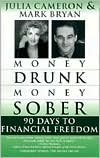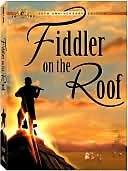I’m running a Kickstarter for The Writer Behind the Words (Third Edition) to help writers stay motivated during tough times.
I hope you’ll check it out.

You are browsing archives for
I’m running a Kickstarter for The Writer Behind the Words (Third Edition) to help writers stay motivated during tough times.
I hope you’ll check it out.

Can’t resist a sale?
Have a budget, but rarely stick to it?
Do store clerks know you by zip code?
Does your credit card have a name: Maxed Out?
If this sounds like you, you’re not alone. The holidays are a season of giving, but for shopaholics they’re the equivalent of an alcoholic at a beer keg party—temptation everywhere. Sales, discounts, buy one get one free, layaway…all to the tune of holiday music. It was during one holiday season when I came up with the premise for GAINING INTEREST.
A close friend of mine had just spent over $600 dollars on clothes she didn’t need (and couldn’t afford). I convinced her to take all the items back and cancel her store credit card. I then went to the library and read Julia Cameron’s MONEY DRUNK, MONEY SOBER and bought  it for her and another friend of mine. The other friend, who happened to spend more on clothes than on food and rent, read the book and said that it didn’t pertain to her…oooookay.Read More
it for her and another friend of mine. The other friend, who happened to spend more on clothes than on food and rent, read the book and said that it didn’t pertain to her…oooookay.Read More
I’d planned on making this another 3 Quick Questions post, but as I learned more about debut author Susan Mason Milks and her new release MR DARCY’S PROPOSAL, I knew I couldn’t stop at three. Jayne Ann Krentz first brought her to my attention on her Facebook page and when I discovered Susan was a Jane Austen fan like myself (Ms. Austen was a big influence on THE DAUGHTERS OF WINSTON BARNETT) I had to talk to her. Enjoy!
About the book
Available in both print and eBook formats!
This retelling of Pride and Prejudice asks “what if” events prevented Fitzwilliam Darcy from proposing to Elizabeth Bennet that day at Hunsford parsonage? Darcy arrives with marriage on his mind, only to find that Elizabeth has just received news her father is critically ill and probably dying. In the process of offering his help to her in traveling home, he discovers what she really thinks of him—and it’s not good. Should Darcy deliver Elizabeth home to be with her family and then disappear from her life, or will he propose another kind of help? Will Elizabeth be willing to sacrifice her future happiness to save her family from financial ruin? Or, do she and Darcy, two very stubborn people, have a chance of finding happiness together?
The Questions
The first time you read Pride and Prejudice in eighth grade you weren’t impressed. Why?
I’ve thought about this quite a bit, and I can’t really come up with a good answer. I do remember that my first impression of Darcy was much the same as Elizabeth’s. Ironically enough, I must have let my impressions prejudice me against the book – and of course, that’s just what the book is about. If you’re familiar with Austen’s work, you may remember that First Impressions was her original title for Pride and Prejudice.
 It was a rainy day in Seattle when I first saw him. I’d planned on reading that day, but my aunt’s dog had chewed up one of my favorite books and I was in a rather foul mood. So I turned on the TV and a man walking with a lame horse appeared on the screen. He was talking to me about his town of Anatevka and the traditions there. Soon I got to meet his wife Golda and his five daughters: Tzeitel, Hodel, Chava, Sphrintze and Bielke.
It was a rainy day in Seattle when I first saw him. I’d planned on reading that day, but my aunt’s dog had chewed up one of my favorite books and I was in a rather foul mood. So I turned on the TV and a man walking with a lame horse appeared on the screen. He was talking to me about his town of Anatevka and the traditions there. Soon I got to meet his wife Golda and his five daughters: Tzeitel, Hodel, Chava, Sphrintze and Bielke.
I watched the movie Fiddler on the Roof transfixed. I was ten, but I knew these people. I knew this man. I knew his connection to tradition, faith and family; his sufferings and hopes. I could relate to his thirst for knowledge and riches. The fact that he was Russian, Jewish, and poor meant nothing to me because on the most basic level–the human level–I could relate.
Tevye and his family taught me about life. Their story about grappling with identity and change was  something I, a child of immigrants, could identify with. From early childhood I was told about the importance of our family name and listened to the many stories of my grandparents and their grandparents. I had a responsibility to keep the family name from shame. I know that to some this is a foreign concept, especially in America, which prides individuality over anything else. In Fiddler on the Roof I saw the daughters struggle with trying to deal with individual identity versus family identity, something I dealt with growing up and saw all around me especially among other immigrant families we knew. When I read the stories in Tevye the Dairyman and Tevye’s Daughters on which the movie is based, I was heartbroken by the stark realities of their lives (outright depressed sometimes).
something I, a child of immigrants, could identify with. From early childhood I was told about the importance of our family name and listened to the many stories of my grandparents and their grandparents. I had a responsibility to keep the family name from shame. I know that to some this is a foreign concept, especially in America, which prides individuality over anything else. In Fiddler on the Roof I saw the daughters struggle with trying to deal with individual identity versus family identity, something I dealt with growing up and saw all around me especially among other immigrant families we knew. When I read the stories in Tevye the Dairyman and Tevye’s Daughters on which the movie is based, I was heartbroken by the stark realities of their lives (outright depressed sometimes).